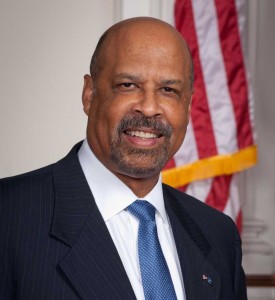Gov. Corbett’s infrastructure plans important to economic development of region
By Terence Farrell, Chester County Commissioner
Every Pennsylvanian should welcome Governor Corbett’s announcement this month of a new and expanded transportation funding strategy for the Commonwealth. Whether you drive, take the bus, ride the train, walk or use your bicycle, we all rely on our transportation network. Our road, rail and trail network not only serves our daily needs, enabling us to get to work, school or shopping, but serves our regional economy, allowing us to compete effectively in the global economy. A safe, well-maintained transportation system supports both regional and local economic development, jobs and strong communities.
For many years, the American infrastructure was among the best in the world, but in recent years we have fallen behind. As recently as 2002, the World Economic Forum ranked the quality of U.S. infrastructure as 5th best in the world; in the most recent ranking in 2012, the U.S. has dropped to 24th, just behind Malaysia. The most recent report card from the American Society of Civil Engineers, which looks at infrastructure conditions across the country, graded Pennsylvania’s bridges a “C” and its roads and transit systems a “D-“. These are grades that would not be acceptable for our children’s report cards, and they are not acceptable for Pennsylvania.
And according to a recent report, The Future of Mobility in Pennsylvania from national transportation research group TRIP, poor road and bridge conditions cost the average driver in the Philadelphia region more than $1,400 per year in vehicle operating expenses, wasted fuel and lost time.
Clearly, it is time to invest in our transportation system to pave the way toward a strong future. As Board Chair of the Delaware Valley Regional Planning Commission (DVRPC), the Metropolitan Planning Organization for Greater Philadelphia, I work with my fellow Commissioners representing the counties and cities of southeastern Pennsylvania and southern New Jersey to help advance transportation capital improvements consistent with sound planning and environmental quality.
Each year, DVRPC prepares a list of transportation projects based on immediate needs, called the Transportation Improvement Program, or TIP. The current TIP for Southeastern Pennsylvania authorizes almost $1 billion in spending per year for highway, transit, bridge and other transportation needs. While significant, this level of funding is barely sufficient to meet our immediate maintenance and modernization needs, much less invest in the new services and capacity needed for future growth. DVRPC’s long range plan, Connections, which forecasts needs out to the year 2040, projects that continuing the current levels of funding will leave many of our roads in poor condition, our bridges facing a threat of closure, and our transit systems facing key cutbacks and service reductions.
How did it get so bad? Transportation improvements are funded primarily by the gas tax. At the federal level, the gas tax of 18 cents per gallon has been fixed since 1993. The Pennsylvania gas tax of 32 cents per gallon has not increased since 1997. Now imagine if your income had not increased in 20 years. Between inflation, improved vehicle fuel efficiency, the rising cost of materials such as oil and steel, and the expanded system needs, the real revenue available to maintain and improve our transportation system is just half of what it was 20 years ago.
Governor Corbett’s Transportation Funding Advisory Commission, in its 2011 report, clearly articulated the Commonwealth’s needs for investment, noting that “we need a comprehensive, strategic blueprint for how we pay for years of underinvestment in our roads, bridges, and public transit systems.” The Governor is to be commended for heeding the call, and investing in Pennsylvania’s future. Among the key transportation funding points that Governor Corbett detailed this month in his budget address are the removal of a cap on the Oil Company Franchise Tax over five-years, which will net an additional $1.8 billion over that time, providing additional funding for highways, bridges, transit, local roads, and multi-modal transportation. Full details of the Governor’s transportation funding proposal package can be found on www.dot.state.pa.us.
With additional investments in our transportation system, we can improve safety and save lives. We can replace our old bridges and expand our transit system. We can provide trails and sidewalks that serve our communities. We can enhance our freight network that brings goods to market and grows the economy. And we can reduce travel times and commuting costs, letting us all spend less time stuck in traffic and more time with our families.
The transportation system is a public good that we all use and we all benefit from. Now it is time to invest in that system to maintain, improve and enhance it.
Terence Farrell is a Chester County Commissioner and current Chairman of the DVRPC. He may be contacted at tfarrell@chesco.org.








This is a timely and well-written article. Thank you, Commissioner Farrell for your Op-Ed.
We do lack public transportation and funding for infrastructure maintenance. Governor Corbett’s tackling the cap on the Franchise Tax is an important step towards funding transportation investment.
I have a couple of comments:
I think a 10-year license (or a lifetime – upto 70 year – license like they have in the UK) is worth considering. This would significantly reduce the burden on the DMV – after all, my passport lasts 10 years; why shouldn’t my driver’s license?
The proposal to remove the ridiculous registration stickers that we have is incredibly insightful. Every year, I scrape my old sticker off with my kitchen knife, all the while using language that I shouldn’t be using. My license plate in the sticker area is chipped and the new sticker adheres at a crazy angle because placing it neatly in the little sticker-shaped dimple is all but impossible. Oh, to never have to do it again…!
This Op-Ed cheered me up.
With regard to my post above:
” (or a lifetime – upto 70 year – license like they have in the UK)”
I meant up to the age of 70.